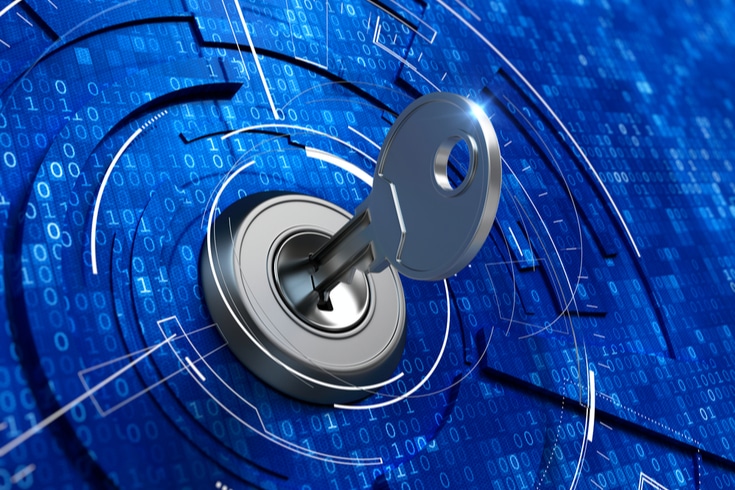Explaining the Validity of the Rapid Increase in Electronic Signatures and Electronic Contracts Amid the COVID-19 Crisis

With the expansion of remote work due to the COVID-19 pandemic, the use of electronic contracts is on the rise. Electronic contracts eliminate the need for the time-consuming process of signing and stamping documents received by mail and returning them. All you need to do is review the content on a computer or similar device and sign it, saving you a significant amount of time and effort.
In this article, we will explain the validity of electronic signatures and electronic contracts.
Contracts and Contract Documents
A “contract” refers to an act that creates a legal rights and obligations relationship through the agreement of the parties involved. If rights and obligations arise through agreement, then what is the purpose of a “contract document”?
Civil Law and Contracts
A written contract is not a requirement for a contract to be valid. A contract can be established verbally, and even a verbal promise can constitute a contract. However, if a dispute arises over a contract, it becomes necessary to prove the existence of that contract. In the case of a verbal contract, there would be no physical evidence. To prepare for such situations, a written contract is necessary as evidence in case of a dispute.
However, the evidence that can be submitted as proof of a contract in a civil lawsuit is not limited to paper contracts. Video recordings, as well as electronic data stored on magnetic disks, can also be submitted as evidence.
Regarding contracts, the Civil Law stipulates:
Article 522 of the Civil Law (Formation and Form of Contracts)
A contract is formed when an offer to enter into a contract, indicating the content of the contract (hereinafter referred to as “offer”), is accepted by the other party.
2. Unless otherwise provided by law, the formation of a contract does not require the creation of a written document or any other form.
This stipulates that a contract is formed when the parties’ intentions coincide. The second paragraph states that the creation of a written document is not mandatory for the formation of a contract, and the form can be freely determined. Therefore, it is not a problem to digitize almost all contracts nowadays.
However, as stated in the second paragraph, “unless otherwise provided by law,” there are cases where a written document is required by law. In these cases, the creation of a document on paper is generally a condition for the formation of a contract.
For example, guarantee contracts and fixed-term lease contracts under the Leasehold and Lease Law are not recognized as effective unless they are in writing. However, for guarantee contracts, although Article 446, Paragraph 2 of the Civil Law states that “a guarantee contract does not take effect unless it is in writing,” Paragraph 3 states that “when a guarantee contract is made by electromagnetic record, it is considered as made in writing, and the provisions of the preceding paragraph apply.” Therefore, a contract is valid even if it is an electronic contract.
On the other hand, a gift contract can be made verbally, but if it is not in writing, the parties can cancel it. In guarantee contracts, a written contract is required, so there is a possibility that cancellation may be allowed in guarantee contracts made by electronic contracts.
Furthermore, for cooling-off periods in door-to-door sales, etc., the business operator is obliged to deliver a document clearly stating the contract contents, and the cooling-off period does not proceed unless the document is delivered. Consumers also need to make a written document to cool off.

Civil Procedure Law and Contracts
According to Article 522, Paragraph 2 of the Japanese Civil Code (民法), a contract can be validly established without a written document unless there is a special provision. However, the validity of a contract and whether it is accepted as evidence in court are separate issues. When a dispute arises over a contract, it is necessary to determine the validity of the contract based on evidence.
So, are digitized contracts valid in court? In the Japanese Civil Procedure Law (民事訴訟法), it is stated regarding the submission of documentary evidence:
Article 228 of the Civil Procedure Law (Establishment of Documents)
Documents must prove their authenticity.
(Omitted)
4. Private documents are presumed to be authentic when they bear the signature or seal of the person or his/her agent.
Article 228 of the Civil Procedure Law stipulates that the evidential power of a document is not recognized unless its authenticity is proven. However, in practice, it can be difficult to prove authenticity. For example, even in the case of a loan agreement, it must be clarified who wrote it and who created it, but proving this can be difficult.
Therefore, Paragraph 4 of the same Article provides a “presumption provision” that even private documents that are not official documents are presumed to be authentic when they bear the “signature or seal” of the person or his/her agent. In other words, the “signature or seal” is a presumptive requirement for a document to be “authentically established”.
However, it is not enough to simply have a seal to be considered authentic. It must be proven that it belongs to the person. If it is an official seal, you can attach a certificate of seal impression to prove that the seal is the person’s own, but it can be difficult to prove the person’s identity if you use a simple seal.
In the case of electronic documents, Article 231 of the Civil Procedure Law states that “the provisions of this section shall be applied mutatis mutandis to objects that are not documents but were created to represent information, such as drawings, photographs, audio tapes, video tapes, and other objects”. Therefore, electronic documents are also treated as equivalent to documents under this provision, and even emails are accepted as evidence in court if their content is highly credible.

Electronic Signature Law and Contracts
The “Japanese Electronic Signature Law (Law concerning Electronic Signatures and Certification Services)” defines the term “electronic signature” applied to electronic documents, regulates the business of its certification, and stipulates the legal validity of electronic signatures.
Regarding the definition of an electronic signature, it is stated in:
Article 2 of the Japanese Electronic Signature Law
In this law, “electronic signature” refers to measures taken for information that can be recorded in electromagnetic records (records made in electronic, magnetic, or other methods that cannot be recognized by human perception, and are used for information processing by computers. The same shall apply hereinafter.), and refers to those that meet all of the following requirements:
1. It is intended to indicate that the information is related to the creation by the person who took the measure.
2. It is possible to confirm whether or not the information has been altered.
When summarized, an “electronic signature” is a “measure taken for information that can be recorded in electromagnetic records”, “something that indicates that the person who took the measure is the creator”, and “something that can confirm that there has been no alteration to the information”.
At present, the mechanism to realize electronic signatures is a cryptographic technology called public key cryptography. By creating a pair of encryption and decryption keys, if there is a ciphertext that can be decrypted with a specific decryption key, it can be proven that the ciphertext is the result of encrypting the original text that was not encrypted with the encryption key corresponding to the decryption key.
If you make one of these two keys public through the Internet or other means and keep the encryption key as a private key, it is presumed that the ciphertext that can be decrypted with the public key was encrypted by the administrator of the private key that pairs with the public key. This mechanism, which allows you to infer the creator of the electronic file and that the created file has not been altered, is public key cryptography.
However, the provisions of the Electronic Signature Law do not require the adoption of this public key cryptography. This is because consideration is given to not limiting it to public key cryptography so that new technologies can be treated as electronic signatures under the law even if they are put into practical use due to future technological developments. This is because a better method may be found to prove authenticity and non-tampering in the future.

In the Electronic Signature Law, for electronic documents, it is stated:
Article 3 of the Japanese Electronic Signature Law (Presumption of the Genuine Establishment of Electromagnetic Records)
An electromagnetic record that has been created to represent information (excluding those created by public officials in the course of their duties) is presumed to have been genuinely established when an electronic signature (limited to those that can only be performed by the person himself by properly managing the necessary codes and items for performing it) by the person himself has been performed on the information recorded in the electromagnetic record.
It is stated that if an electronic signature that can only be performed by the person himself has been performed, it is presumed to have been genuinely established.
Whether it is an electronic signature by the person himself can be proven using an electronic certificate. In the case of a seal, you confirm whether the seal impression and the seal are the same with a seal certificate, but with an electronic signature, you can confirm whether it is correct with an electronic certificate. Since the electronic certificate contains the “public key”, which is information for verifying the electronic signature, an electronic signature that can be confirmed with the public key can be proven to be the person’s own.
Summary
In online interactions, where face-to-face communication is not necessary, it is crucial to verify whether the sender and receiver of the information are indeed who they claim to be, and whether the information has been altered in transit. Electronic signatures serve as an effective means for this purpose.
Electronic signatures carry the same legal weight as physical signatures. Even in the case of electronic contracts, their validity is recognized, and they can be used as evidence in court proceedings.
Introduction to Our Firm’s Measures
Monolith Law Office is a legal office with high expertise in both IT, particularly the Internet, and law. The safe utilization of electronic contracts is expected to increase in demand in the future. Our firm handles the creation and review of contracts for various cases, from companies listed on the Tokyo Stock Exchange Prime Market to venture businesses. If you have any concerns about contracts, please refer to the article below.





















